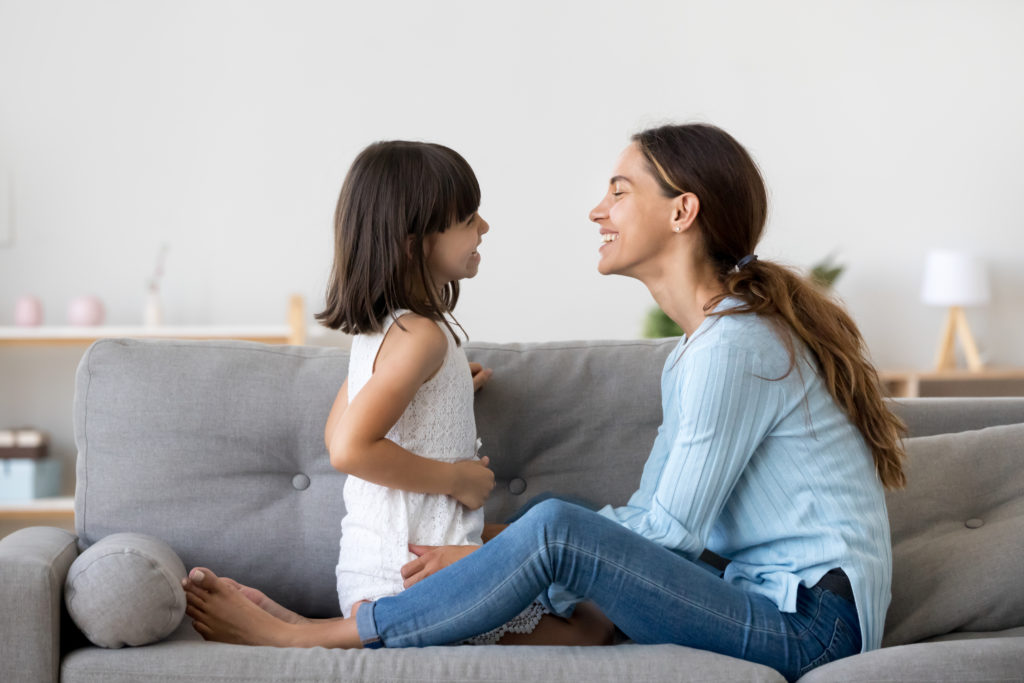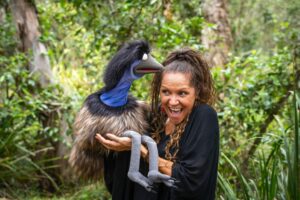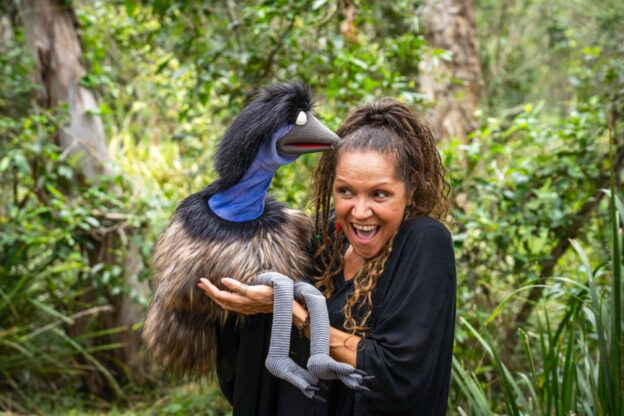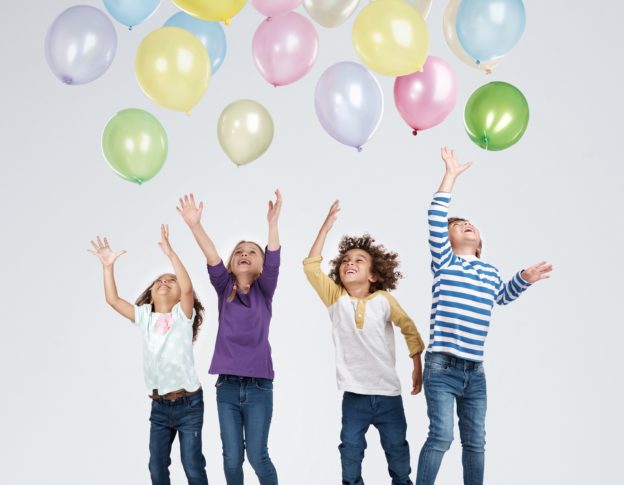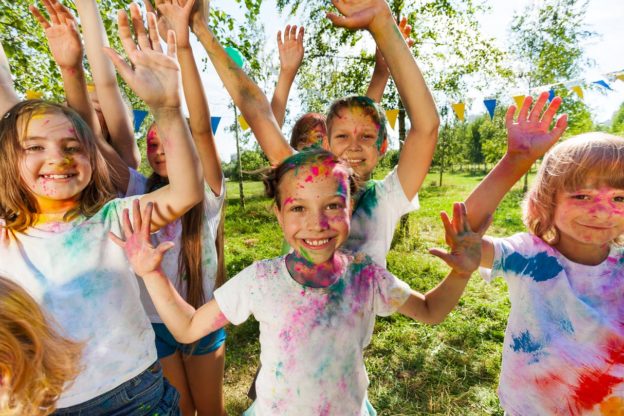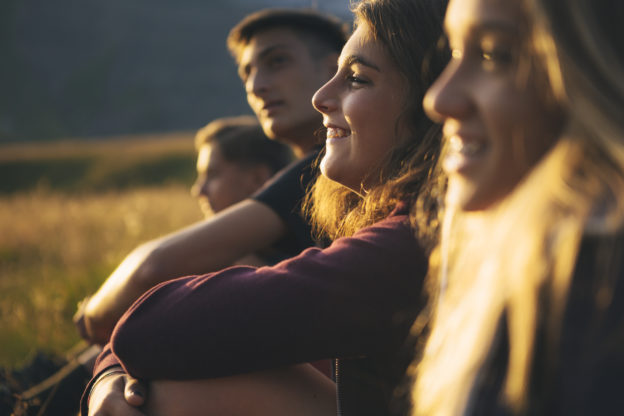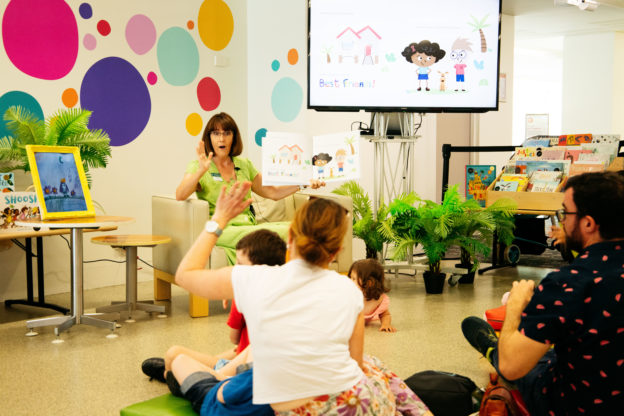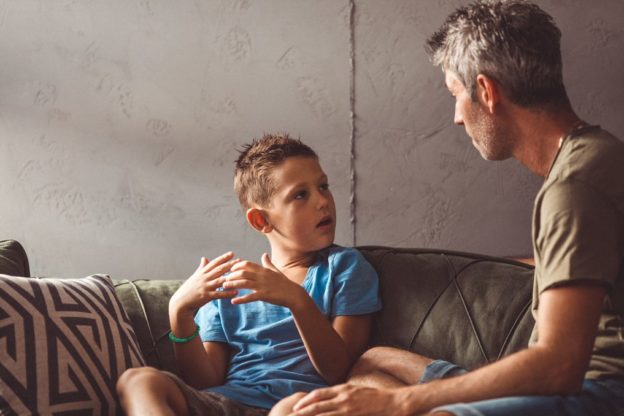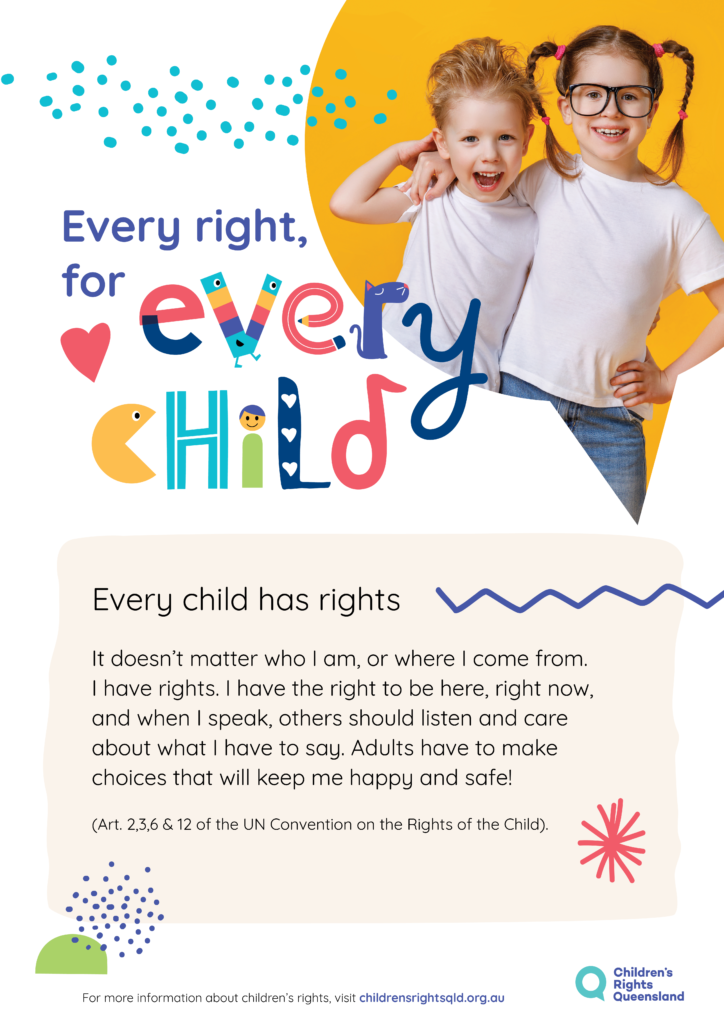What is the right to speak freely?
We all have something to say. It shapes who we are and showcases our values and what we stand for.
It’s our voice.
It’s this voice that helps us to defend ourselves and fight for the rights of others – to speak up when we see injustice, or to share our ideas in the hope of helping those around us.
Our ability to speak freely without fear of repression or danger is one of our most cherished rights in Australia, it forms the bedrock of our democracy. And while the vast majority of policies and decisions are made by adults, this right to share emotions, opinions and ideas is also entitled to our youngest members of society – children.
This right is supported by Article 12 and 13 of the United Nations Convention of the Rights of the Child.
Article 12 states:
“States Parties shall assure to the child who is capable of forming his or her own views the right to express those views freely in all matters affecting the child, the views of the child being given due weight in accordance with the age and maturity of the child.”
Article 13 states:
The child shall have the right to freedom of expression; this right shall include freedom to seek, receive and impart information and ideas of all kinds, regardless of frontiers, either orally, in writing or in print, in the form of art, or through any other media of the child’s choice.”
With these articles in mind, let’s take a deeper look into these important articles and how they affect us today.
Why are Article 12 and 13 of the UNCRC so important?
The right of children to speak their mind is something that isn’t talked about all that much. Without it, it’s easy to lose sight of the place that children have as rights holders. These are basic civil rights we’re talking about here – the rights of everyone.
The Universal Declaration of Human Rights enshrines this right to freedom of expression for all. It’s the backbone of a free-thinking and progressive deomocratic society.
So why is it so important for children?
Article 12 and 13 of the UNCRC play a pivotal role in each child’s understanding of their own rights and how to express themselves when they feel they’re being infringed. It promotes growth in empathy, and a respect for the opinions and feelings of others. Not only does it make them stronger for their own sake, but it helps encourage the power of standing up for those who don’t have a voice – a fundamental part of growing up.
Ultimately, it’s critical for a child’s development.
It amplifies personal expression and can help fight off strong negative emotions that occur when their thoughts feelings are not heard, including:
- lower self-esteem
- depression
- anxiety
- stress
- general unhappiness
By truly listening to a child, we can do our best to keep these negative emotions at bay and promote autonomy through self-confidence, independence, creativity and self-advocacy.
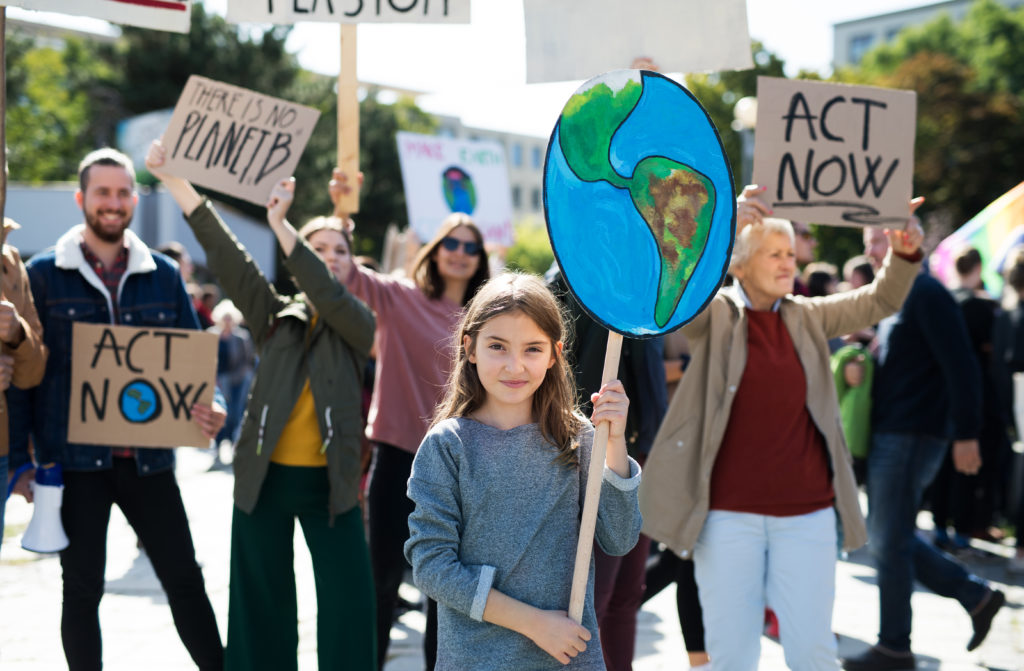
How can children participate in matters that affect them?
In recent years, there’s been a growing movement of children’s involvement on the world world stage. Their voices are becoming louder and stronger.
The March for Our Lives movement was founded by American school children to speak out against gun violence, Greta Thunberg was named TIME’s Person of the Year in 2019 for her activism in the fight against global climate change, and Malala Yousafzai became the face of worldwide girls’ education after being attacked for her views in her native Afghanistan (she eventually won the Nobel Peace Prize for her advocacy).
Here in Australia, it’s estimated that almost 50,000 students attended School Strike for Climate rallies earlier this year – a staggering turnout that showcased exactly how important it is to listen to the voices of young people.
And while all of these stories of participation have made it to the news, there are plenty of ways that children can participate in matters that affect them on a daily basis.
So how can each child do this? They can:
- attend protests
- write to a local MP
- get involved with local youth groups
- comment or complain
- speak to a trusted adult
By having these outlets available to them, children can feel confident in having their voices heard. Be it at school, home, or in the wider community, young people can openly – and most importantly, safely – share their concerns, opinions and emotions without fear of being judged or ignored.
How can we implement this right in different settings?
At the end of the day, we all have a responsibility to encourage children’s self-expression. It provides a wider scope in important community decision making and helps all levels of society move forward with greater representation.
The Juvenile Justice Centre lists a number of requirements of processes in which children can be heard at all times. These processes must be:
- transparent and informative, so that the child understands them;
- voluntary, as there is no obligation to speak
- respectful of the child’s views
- relevant to the child’s needs and experiences
- child-friendly, that is, designed in a way that is accessible and encouraging to children
- inclusive, so that all children can exercise their right to participation without discrimination
- supported by training of the adults involved on how to safeguard the rights of the child
- safe and sensitive to the risk that can be associated with expressing one’s views; and
- accountable by way of feedback and monitoring.
So with this in mind, how can we help children to be heard in a range of different settings?
Here are a few ways to help the young people around you.
Family and out of home care
It’s essential that families, guardians and caregivers always listen to children and give due weight to their opinions – especially on matters that affect the child directly. As a young person’s capacities evolve, we must account for new viewpoints and beliefs, always listening and maintaining an open dialogue that keeps the child’s best interests at the front of our mind.
Health care
While health care is an incredibly complex area when it comes to consent and confidentiality, there are steps medical professionals and carers can take to act in the best interests of young people. Doctors must always consider age and maturity, living situation, and how serious possible treatment might be before approving any further action. And for carers – it’s important to never discount any child’s opinion on their own health. Of course, as adults, we should listen to our doctors, but it must always be balanced with the feelings and thoughts of the child it affects.
Education and school
Active participation in school is a great opportunity to get children involved in expressing themselves and effecting change in an immediate way. The inclusion of student representative councils and student organised events and learning can help students contribute directly, instilling a greater sense of pride in their school community. And in a great show of trust in the opinions of young people, Victorian students are now also represented on hiring panels when interviewing new teachers – a wonderful initiative that gives children a greater say in developing their school community.
Over to you
For many, it can be easy to disregard the opinions of children based purely on their age. Unfortunately, this happens more than we’d like to think. But when we open up ourselves to the emotions and thoughts of young people, we are listening to all ofsociety, not just a fraction of it. This greater representation provides the building blocks for stronger policy decisions, healthier relationships and ultimately a brighter future. One that’s full of people who were given the opportunity to share and contribute to the world around them.
If you liked this article please share.
References:
https://sunshinehouse.com/blog/5-ways-to-help-your-children-express-themselves/
https://archive.crin.org/en/home/rights/convention/articles/article-13-freedom-expression.html
https://www.ohchr.org/en/professionalinterest/pages/crc.aspx

